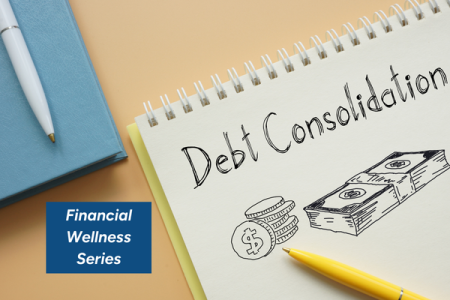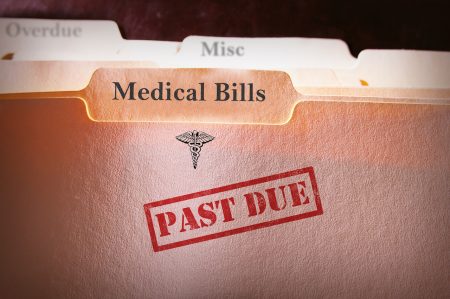Credit Sesame discusses recovering from a financial setback by rebuilding your credit and confidence.
Life is unpredictable, and financial setbacks can happen to anyone. Whether it is a job loss, medical expenses, or unexpected emergencies, these events can disrupt your financial stability and overwhelm you. However, recovery is possible. You can rebuild your credit and regain confidence in your financial future by taking strategic steps.
1. Assess your current financial situation
The first step in recovering from a financial setback is to evaluate where you stand. Take stock of your income, expenses, debts, and credit score. Use a budgeting tool or a simple spreadsheet to list your financial obligations and identify areas where you can cut back.
Understanding your situation is essential for creating a realistic plan. For example, if you have missed payments, check how they have affected your credit report. Knowing the extent of any damage helps you focus your efforts on the most critical areas.
2. Set realistic financial goals
After assessing your situation, set clear and achievable financial goals. These could include catching up on past-due bills, saving for emergencies, or raising your credit score by a specific number of points.
Breaking down your goals into smaller, actionable steps can make them feel more attainable. For instance, if your goal is to pay off $5,000 in debt, aim to pay $100–$300 per month, depending on your budget.
3. Create a budget that works for you
A well-crafted budget is your roadmap to financial recovery. Start by prioritizing essential expenses like housing, utilities, and groceries. Allocate funds toward debt repayment and savings, even if it is a small amount initially. The 50/30/20 rule might be helpful way to divide your income.
- 50% to necessities.
- 30% to discretionary spending.
- 20% to savings and debt repayment.
You can adjust these percentages based on your circumstances. The goal is to ensure you live within your means while making progress toward recovery.
4. Address overdue debts
If you have fallen behind on debt payments, it is crucial to address them quickly. Contact your creditors to explain your situation and explore repayment options. Many lenders offer hardship programs, including reduced interest rates, lower payments, or temporary payment deferrals.
If you have multiple debts, consider using either the debt snowball method (paying off the smallest debt first) or the debt avalanche method (focusing on the debt with the highest interest rate). Both strategies can help you gain momentum and reduce financial stress.
5. Monitor and improve your credit score
Your credit score plays a significant role in financial recovery. Start by checking your credit report for errors, such as incorrect balances or accounts that do not belong to you. Dispute any inaccuracies with the credit bureaus to ensure your report reflects your actual financial situation. Take steps that can improve your score:
- Pay all bills on time. Payment history accounts for 35% of your credit score.
- Reduce your credit utilization ratio by paying down balances. Aim to keep it below 30%.
- Avoid opening too many new credit accounts, which can temporarily lower your score.
Building positive credit habits over time helps you regain financial stability and open up opportunities for better loan terms in the future.
6. Build an emergency fund
Establishing an emergency fund is one of the best ways to protect yourself from future setbacks. Saving might feel challenging during recovery, but even small contributions add up over time.
Aim to save three to six months’ worth of living expenses. Start with a more manageable goal, such as $500 or $1,000, and gradually work your way up. This cushion provides peace of mind and reduces reliance on credit cards or loans during unexpected expenses.
7. Rebuild confidence through financial education
Recovering from a financial setback is not just about the numbers—it is also about rebuilding your confidence. Educate yourself on personal finance topics to feel more in control of your money.
Many free resources are available, including online courses, blogs, podcasts, and books. Learning about budgeting, investing, and credit management can empower you to make informed decisions and avoid future pitfalls.
8. Explore alternative income streams
If your financial setback stemmed from a loss of income, consider exploring additional ways to earn money. A side hustle, freelance work, or selling unused items can provide extra cash to help with debt repayment or savings.
Platforms like Upwork, Etsy, or TaskRabbit make finding opportunities that align with your skills and interests easier than ever. A few hours a week can make a difference in your financial recovery.
9. Celebrate small victories
Recovery can feel like a long road, so it is important to celebrate progress along the way. Whether paying off a credit card, reaching a savings milestone, or improving your credit score, acknowledge your achievements.
Celebrating small wins can boost your morale and motivate you to stick to your plan. Treat yourself to something modest, like a favorite meal or a movie night, to mark these moments.
10. Seek support if needed
Financial recovery can be challenging, but you do not have to face it alone. If you are struggling to create a plan or manage your debt, consider seeking help from a financial advisor or credit counseling service.
Nonprofit organizations like the National Foundation for Credit Counseling (NFCC) offer free or low-cost assistance. A professional can help you develop a customized plan and provide guidance on navigating complex situations.
Recovering from a financial setback takes time, effort, and resilience. By assessing your situation, setting realistic goals, and adopting smart financial habits, you can rebuild your credit and regain confidence in your financial future.
Setbacks are a normal part of life, and recovery is part of the process. With patience and persistence, you can turn your financial challenges into an opportunity for growth and long-term stability.
If you enjoyed How to recover from a financial setback you may like,
Disclaimer: The article and information provided here are for informational purposes only and are not intended as a substitute for professional advice.
Read the full article here









